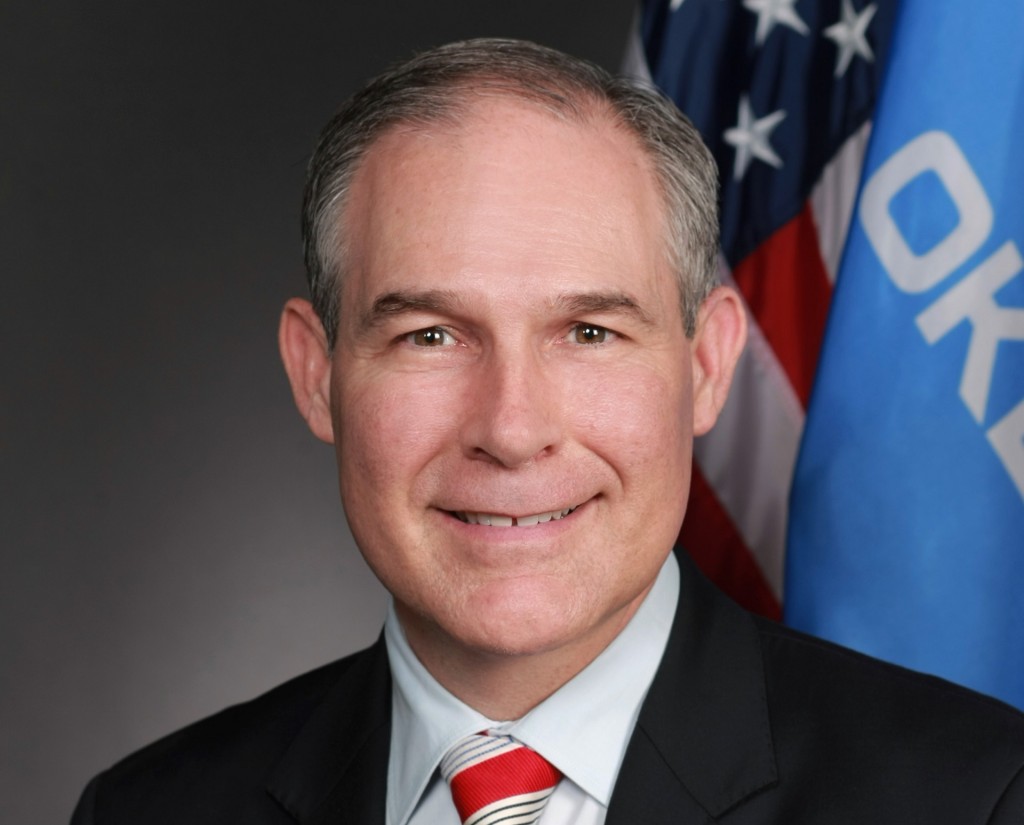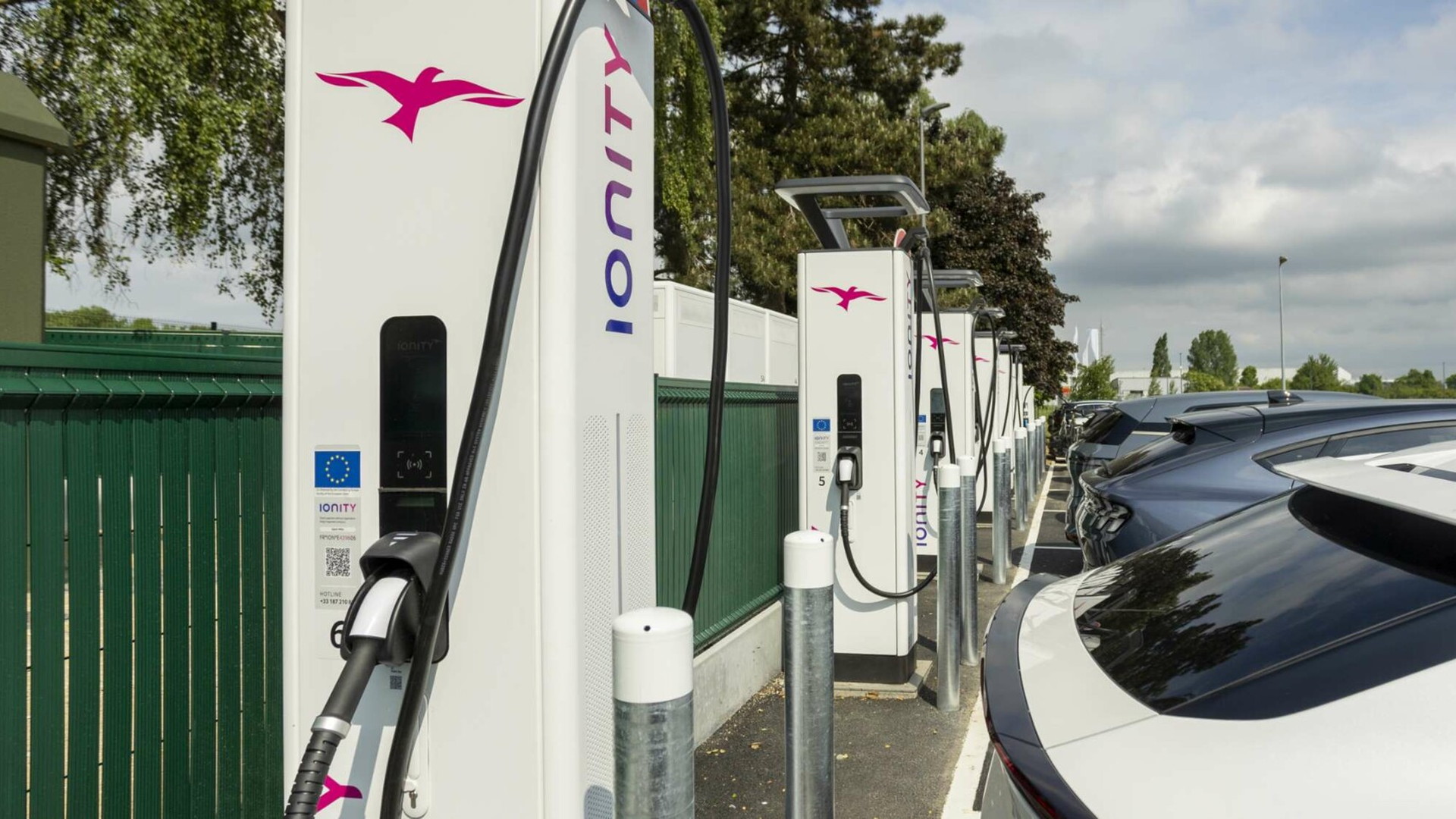Lobbyists for the world's automakers continue to ask the new presidential administration to revisit an EPA decision to finalize emissions standards through 2025.
Just days after the November election, the Alliance of Automobile Manufacturers wrote President-Elect Trump to ask that he reverse the decision on emissions standards made by the environmental agency during the final days of his predecessor's tenure.
Last week, executives of 18 automakers have sent a second letter asking the same thing—one that used a discredited projection of job losses to make their case.
DON'T MISS: Carmakers ask Trump to review EPA rules, use discredited job projection
Now a third letter on the subject has been sent, this time to newly-confirmed EPA boss Scott Pruitt.
The Alliance requested that Pruitt withdraw the EPA decision finalizing the emissions rules, and restart a midterm evaluation process for those rules, according to The Detroit News.
The EPA had been given until April 2018 to determine the feasibility of automakers meeting emissions rules for 2022 to 2025 before it finalized those rules. The agency completed that process in January, before the Trump administration took office.
![The White House, Washington, D.C. [Creative Commons license by dcjohn] The White House, Washington, D.C. [Creative Commons license by dcjohn]](https://images.hgmsites.net/lrg/white-house_100170583_l.jpg)
The White House, Washington, D.C. [Creative Commons license by dcjohn]
In the letter, the lobbying group said the EPA had "unnecessarily politicized" the midterm review by completing it before the deadline.
Alliance president Mitch Bainwol said the agency had gone back on a promise to make the review process "collaborative," and to give automakers enough time to "offer agencies real data to adjust their model-driven forecasts."
The comments and supporting documents submitted to the EPA, however—addressed in the Technical Assessment Report it issued last July with other regulators—run to thousands of pages and include comments from those automakers.
ALSO SEE: EPA finalizes emission rules through 2025; no change from existing levels
In a statement, Sierra Club associate director for federal advocacy Andrew Linhardt accused automakers of "attempting to backpedal on climate and consumer protections."
"This is a shift in the wrong direction from 2009," Linhardt said, "when automakers stood with President Obama and agreed that the fuel efficiency standards were realistic and achievable."
While automakers complain about emissions standards, the July Technical Assessment estimated that those standards could be met.

Gas pump
Among other conclusions, the report found that automakers had met 2012-2017 emissions rules at a lower-than-expected cost.
It found that meeting the 2022-2025 standards could largely be done with conventional technologies, rather than the more-expensive deployment of large numbers of electrified vehicles.
Only continued high sales of SUVs and low gas prices might force automakers to miss the 2025 Corporate Average Fuel Economy goal of 54.5 mpg, the report found, and even then by only a small amount.
MORE: What White House faces if it tries to roll back fuel-economy standards
In recent statements, both EPA head Pruitt and new Department of Transportation boss Elaine Chao said they would review the decision to finalize emissions rules.
Chao's DOT encompasses the National Highway Traffic Safety Administration, which oversees the CAFE rules.
Since 2012, the NHTSA and EPA have coordinated their fuel-economy and emissions rules, respectively.

BMW M3 M Performance exhaust
Unlike the EPA, the NHTSA has not completed the process of finalizing and ruling on its CAFE standards for 2022 to 2025.
That makes fuel-economy standards a potentially vulnerable target for opponents.
Still, altering EPA emissions standards at this point would be complicated.
Because the EPA has already formally adopted its rules, any changes to those rules would require a long sequential process of technical assessments, public comments, and hearings—all based in science.
Any missteps in that process could leave the door open for court challenges to any rules that were altered during the process.
New EPA head Pruitt was confirmed by the Senate two days before the court-ordered release of documents related to his tenure as Oklahoma's attorney general.

Oklahoma attorney general Scott Pruitt, 2014
Those documents show multiple ties to the oil and gas industry, including wholesale adoption of language written by fossil-fuel lobbyists to define Oklahoma state positions.
As attorney general, Pruitt sued the agency he is now running multiple times over its enforcement of legally adopted emissions rules.
In his first full workday as EPA administrator, Pruitt gave a talk to employees indicating that he would not vigorously pursue some types of environmental regulations.
He indicated the agency should defer to both Congress and the wishes of individual states, and emphasized that it didn't have to choose between jobs and the environment.
The latter comment echoed a point made during the George W. Bush administration to justify what critics said was lax enforcement of certain environmental rules.
Despite a Supreme Court decision requiring the EPA to issue rules limiting greenhouse-gas emissions by vehicles, the second Bush administration slow-walked that process.
As a result, the Obama Administration had to address those rules as an early order of business, to provide certainty to anxious automakers about the rules under which they would be selling cars less than 24 months after Obama's January 2009 inauguration.
_______________________________________________












